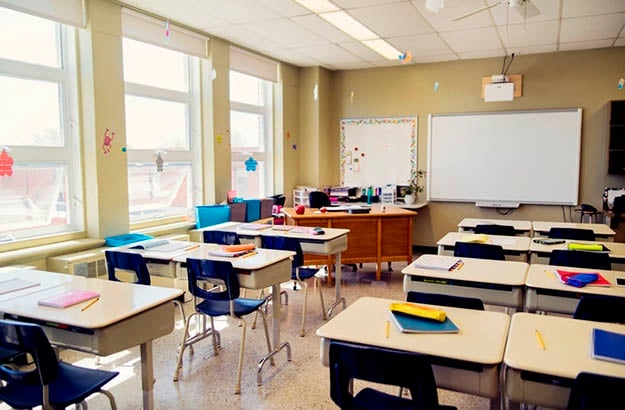
When US educationist William Ayers opined: “In a democracy teachers must be models of thoughtfulness and care; exemplars of problem-solving and decision making,” he was questioning the health of educational systems, particularly the efficacy of teachers and those entrusted to provide education opportunities.
Are they fit for purpose? Research proves to the contrary and there need to be corrective interventions.
Top-performing education systems, such as those in Singapore, Finland, South Korea and Japan, excel because of holistic investment in human capital development and infrastructure for schools.
Regrettably, many countries dodge the essential therapy: Robust interrogation of the “X-ray snapshots” of “sickly” components in the education system.
Sickly components accelerate operational dysfunctionalities, thus worsening the “hypertensive” status of the education system. Emergency care interventions need to be deployed to restore educational equilibrium and achieve what the Global Competitive Report 2014/15 termed a process “to nurture pools of well-educated workers who are able to perform complex tasks and adapt rapidly to the changing environment”.
Although South Africa’s litany of policies has grounded the education system, its efficacy and effectiveness still remain contentious after 25 years of democracy.
Inadequate infrastructure and failure to rehabilitate all learning sites, in terms of the minimum norms for school infrastructure policy directives, remain a challenge. Failure to provide state-of-the-art school infrastructure undermines the social justice obligation espoused by the country’s Constitution.
If unattended, it has the potential to diminish public confidence in education and the country’s international competitiveness. State-of-the-art school infrastructure enlivens school culture and instils a sense of purpose and constructive competition for excellence by pupils and teachers.
Providing state-of-the-art school infrastructure is not a panacea to South Africa’s ills. It merely addresses one component of the sickly education system. Teacher training and preparedness remain a challenge for developing nations.
South Africa needs solid plans to develop that cohort of teachers whose contribution is aptly emboldened by the Unesco 2015 report, namely: “An education system is only as good as its teachers. Teachers are essential to universal and quality education for all. They are central to shaping the minds and attitudes of coming generations to deal with new global challenges and opportunities.”
When teachers are found wanting in the content of curriculum it undermines the rights of pupils to quality education.
South Africa suffers from the teacher training and preparedness trap, which must be addressed.
For instance, the Southern and Eastern Africa Consortium for Monitoring Educational Quality report highlighted a worrisome teacher knowledge deficit as “only 33% of Grade 6 teachers demonstrated ‘critical reading’ skills compared with 77.8% in 2007”.
South Africa has no capabilities to “microwave” that cadre of teachers; it’s a slow and daunting process based on meticulous planning, resource allocation and robust identification of only the talented to join the profession. Robust recruitment and training processes eliminate “accidental” teachers, who become costly for the fiscus and incremental beneficiations.
The Economist, proposed that “only talented people” must “enter teaching” and “be taught how to do their job well”, instead of being “subjected to abstract theorising common on many teacher-training courses”.
It is a professional approach to circumvent a notion advanced by Ayers namely that “classrooms are yeasty places” in which only professionally qualified teachers master the teaching craft and learning ecologies.
Perhaps some “decolonisation” of teacher training and development programmes is required to prepare teachers beyond the 21st-century schooling challenges. It’s about instilling accountability values and practices in the execution of the craft.
A view amplified by Ayers: “Teaching, if it is done well, must be built on vision and commitment; learning, if it is to be meaningful, depends on imagination, risk-taking, intention and invention. Stripped of these elements, teaching is mechanical and sterile and learning is the stuff of pigeons pecking for food or mice running a maze.”
South Africa needs to address the accountability trap that is slowly snuffing the life out of the schooling system before it’s too late.
The Centre for Development and Enterprise 2017 Report on Teacher Professional Standards for South Africa – A Microcosm of Deeper Systemic Challenges noted that the absence of accountability and absenteeism by teachers, which render schools dysfunctional, is manifested by “severe inequality, high drop-out rates, very low learner outcomes and ill-equipped teachers”.
Similarly, when Lant Pritchet, a US development economist, labelled public schools as “wretched because they are unaccountable” because they fail to “demonstrate to parents or anyone else that the children are learning anything”, he underscored the severity of the accountability trap and the need to intervene. Accountability is organic and should be situated in all facets of a system’s structures.
Those entrusted to design and implement teacher training and development programmes should equally account for their role; employers alone can’t be held accountable.
Linda Darling-Hammond and Laura Wentworth, both US educationists, argued that governments are too prone to “lowering of standards for teacher knowledge and opt for ‘quick-fix’ programmes that send people into difficult classrooms with little training in how to teach or deal with children”.
Staffing schools with less qualified teachers perpetuates mediocrity and entrenches socioeconomic quintile gaps.
It’s about time we mark teachers and deploy only the talented to transform schools into “safe and yet powerful” and “inviting and enabling spaces”, where teachers “breathe life into classroom settings”. And pupils routinely breach knowledge boundaries.
Monyooe is a concerned citizen
TALK TO US
What needs to be done to the school system to bring it up to standard?
SMS us on 35697 using the keyword SCHOOL and tell us what you think. Please include your name and province. SMSes cost R1.50. By participating, you agree to receive occasional marketing material




 Publications
Publications
 Partners
Partners








